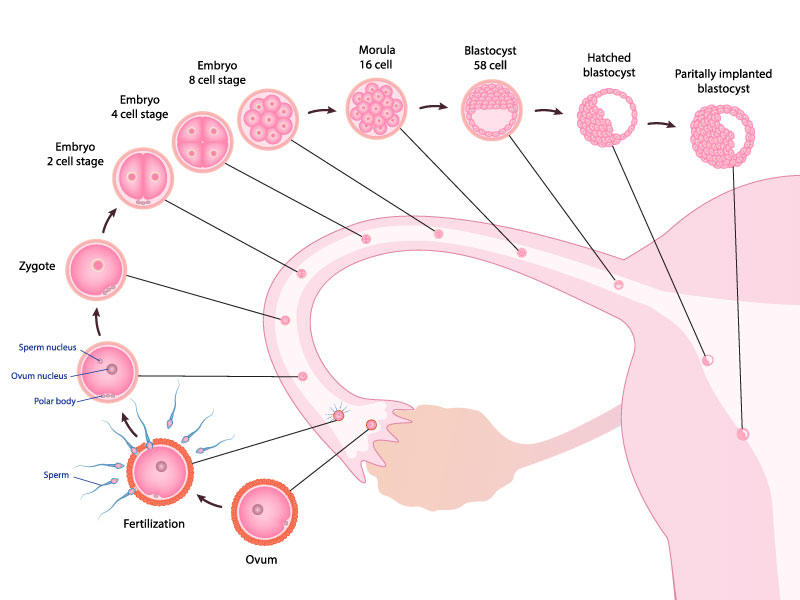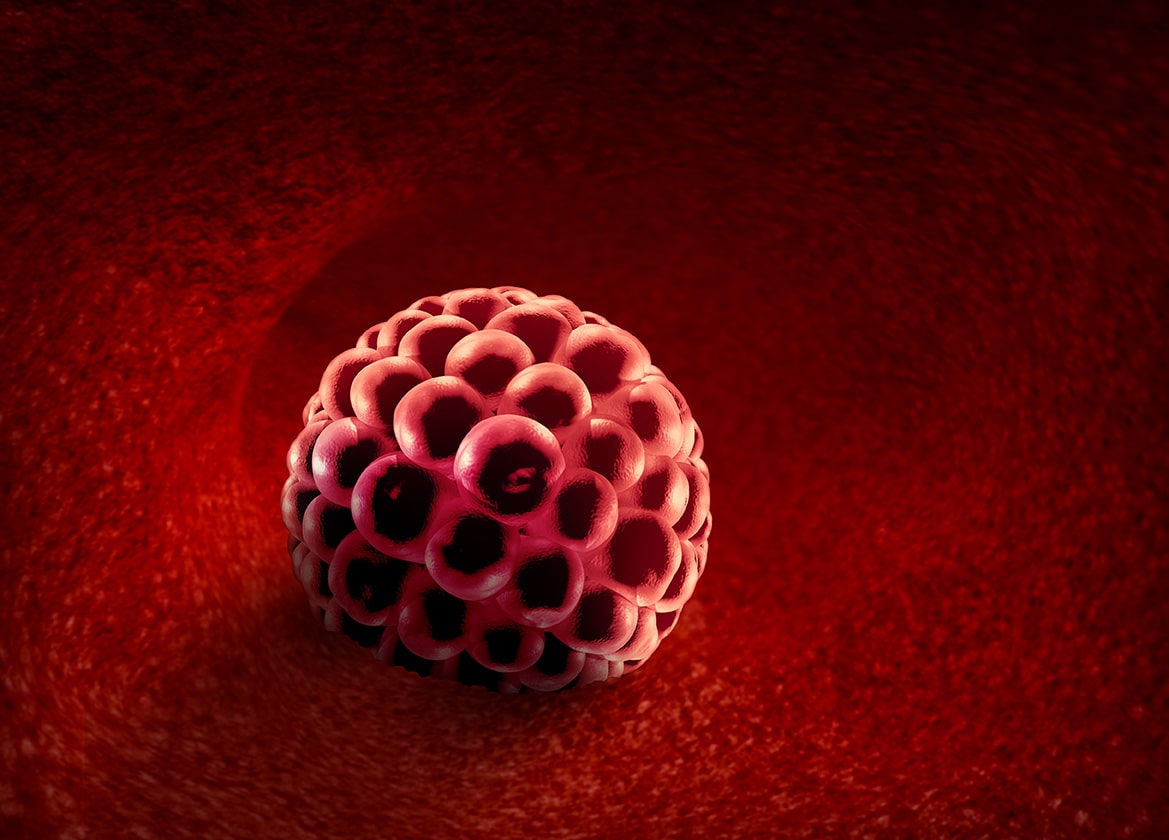Some women may experience symptoms during implantation. Implantation is when the blastocyst (your little bundle of growing cells from a combined egg and sperm) attaches to the uterine wall. This typically occurs 6-12 days after ovulation. You can calculate suspected implantation using our Implantation Calculator.

Implantation triggers pregnancy – causing rising levels of the hormones estrogen, progesterone, and hCG.
Can I tell when implantation occurs?
It’s natural for those trying to conceive to notice every little change in their body and wonder if it’s a pregnancy symptom. Some women may experience symptoms during implantation and others may not notice a thing. As we’ve learned in other posts about getting pregnant, a lot of symptoms of pregnancy are also symptoms of an oncoming period. Here are some signs that may happen during implantation.
- Bleeding/Spotting
- Change in Vaginal Discharge
- Bloating
- Tender Breasts
- Nausea
- Headache
- Mood Swings
- Decrease in basal body temperature (BBT)
Bleeding as a Sign of Implantation
Approximately 25% of women surveyed stated they’ve experienced bleeding or spotting. It’s unclear how common implantation bleeding is as there has been little research into the subject.
Cramps as a Sign of Implantation
The rapid surge of hormones after implantation can cause uterine cramping. Some women state they feel abdominal tenderness, lower back pain, and mild cramps before their period when implantation occurs.
Vaginal Discharge as a Sign of Implantation
Monitoring cervical mucus can give you clues into fertility and maybe even implantation. After implantation occurs, cervical mucus may become thicker and be clear or white. However, this isn’t a reliable indicator as cervical mucus is affected by a number of things like hormones, stress, intercourse, etc. Tracking your cervical mucus over several cycles can lead to a more clear picture, but every woman is unique and you may find yourself seeing signs that aren’t there.
Bloating and Nausea as a Sign of Implantation
Both bloating and nausea can be caused by increasing levels of hormones due to a new pregnancy, but these most commonly occur around the 4-5 week mark of pregnancy, which would be about a week or so after implantation takes place.
Bloating and nausea are also common symptoms of an impending period.
Tender Breasts as a Sign of Implantation
Like most other symptoms of pregnancy and implantation, tender breasts may also be a symptom of your period coming. After implantation, the rapid increase of hormones hCG, estrogen, and progesterone may cause breast swelling or tenderness. Each woman’s body varies, but breast pain or tenderness is one of the most common reported symptoms of pregnancy. If you don’t normally experience breast tenderness with your period, it may be a better clue that you could be pregnant!
Headaches and Mood Swings as a Sign of Implantation
Like most symptoms of implantation, headaches and mood swings may be a sign of a new pregnancy due to – you guessed it – rapidly rising hormones.
Headaches and mood swings can be a precursor to your period as well though, due to an impact hormone changes have on serotonin and other neurotransmitters in your brain.
Decrease in BBT as a Sign of Implantation
Often referred to as an “implantation dip”, women may experience a one-day decrease in basal body temperature when implantation occurs. If you’ve been charting your BBT over the course of a few months or longer you may be familiar with the temperatures throughout your cycle.
The day of implantation women may experience a temperature dip that goes back up the next day. According to self-reported data however, 75% of women did NOT experience an implantation dip, and 11% of charts where women reported a dip it turned out they were not pregnant.
Are there any reliable signs of implantation?
Some women are very in tune with their body and swear they can feel when implantation occurs (most commonly after multiple pregnancies). Generally speaking, any symptom you may be experiencing around the time of a suspected implantation may also be attributed to your coming visit from Aunt Flo.
You can use our Implantation Calculator to see when Implantation is likely to occur and watch for symptoms that might let you know if implantation has happened and you are newly pregnant!
The best way to determine if you are pregnant will always be to take a pregnancy test. A blood test may detect hCG levels more quickly than a urine test, but a lot of pregnancy tests will detect hormone levels 5 days before a missed period.
Sources
https://pubmed.ncbi.nlm.nih.gov/24028734/
https://www.healthline.com/health/implantation-signs




